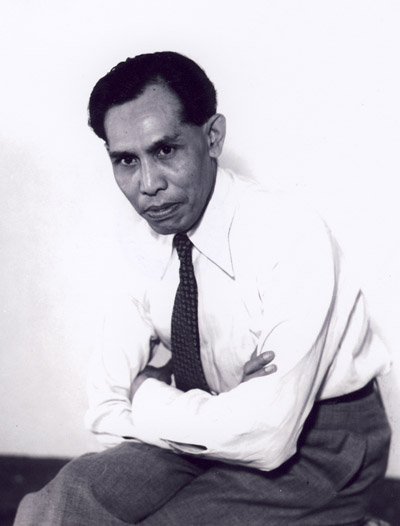
Civis 001/2013
Church’s Attitude in Indonesian Society
With this attitude [of a responsible citizen], is it possible that our society, which is largely composed of people of other faiths, be changed for the better, in the understanding of our faith? I would argue “yes”. (Johannes Leimena)
Can the church and Christians fulfill what was stated in Matthew 22:37-40 (love God and love your neighbor) and Matthew 7:12 (do to others what you would have them do to you)?
Can they become His trusted Salt and Light in this turbulent society? Can they become the conscience of the society?
However heavy, this is the attitude of a responsible citizen.
Now, the question arises: with this attitude, is it possible that our society, which is largely composed of people of other faiths, be changed for the better, in the understanding of our faith? I would argue “yes”, because:
a. Society always heed and respect the attitudes and actions that are based on love towards one another. Like a rice paddy growing in silence, so too the influence of love or compassion in public life.
b. At any rate, the Lord’s command to His disciples remains in effect: “You are the salt and light of the world” (Matthew 5:13-14) and “Let your light so shine before men, that they may see your good works and glorify your Father which is in heaven “(Matthew 5:16).
Is not our society part of the kingdom of God which must be upheld by His people in this ” time between two ages”?
After all, the history of the Church (such as the Roman Empire) and the history of the world (Russia and China) warn us that a small percentage of people can influence the lives of all people and nation, even lead them. In this matter, the main requirement is for the small section to have unwavering faith and trust, and a solid unity.
Of the Indonesian people, indeed we can’t expect each government to have the conviction of being responsible, not only to the people (parliament) but also to God, but at least we can try to ensure our government is made up of people who have that conviction.
Community Development Centers
If development usually goes hand in hand with development (renewal) of community, then in my understanding a number of renewal centers demand our attention:
• Family. Family remains the corner stone of society. Relation of parents – kids, husband – wife, kids with each other, are relations of a small community. Whether or not this relationship is good has a great influence in the community outside of the household, that is, the society at large. Here everyone can learn what “compassion” means.
• School. School remains the center where young people are educated in their responsibilities as members of society (nation) and as valuable citizens.
• Youth organizations. Youth organizations also become a center where young people learn to act together and to develop discipline; a dynamic center where hidden talents can grow, a center where they learn to be responsible to one another, to love one another.
• Work places (offices, companies, and others). Colorful workplaces are also the places where we can show our conviction as responsible citizens in our daily duties and in dealing with our superiors and subordinates.
• Church (For Christians). For Christians, the Church is a fellowship of people who trust and obey God in Jesus Christ. The Church builds the society, as a manifestation of the new creation of this world.
The Church builds the world by making himself the true church, that is, a fellowship among other fellowships in this world, by connecting people who don’t have any ties, by bringing people who live lonely to meet their fellow human beings. In so doing, the Church creates a fellowship out of a mass.

This series originates from the lecture by Dr. Johannes Leimena (1905-1977) in Sukabumi, West Java, in 1955, entitled “Responsible Citizenship”. Being a student activist in STOVIA medical school, he joined the committee for the 1928 Youth Congress which gave birth to the monumental Oath of Youth. Then he served as minister in 18 cabinets from 1946 to 1966, from Minister of Health until Vice Prime Minister. He was entrusted as the Acting President of the Republic of Indonesia for seven times when President Soekarno was overseas. The Bandung Plan that he drew up based on his experience as Minister of Health is the origin of today’s Community Health Center system. He also helped the founding of the Indonesian Christian Student Movement and the Council of Churches in Indonesia.
